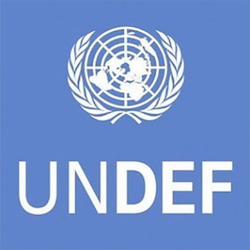Authors: Mann, C.; Voß, J.-P.; Amelung, N.; Simons, A.; Runge, T.; Grabner, L.:
Innovation in Governance Research Group, Department of Sociology, Technische Universität (TU) Berlin
Abstract:
This report emerged from the workshop “Challenging futures of citizen panels”, held by the Innovation in Governance Research Group on April 26, 2013, at the Berlin-Brandenburg Academy of Sciences and Humanities in Berlin, Germany.
The workshop was conceptualized and designed as a platform for a wide variety of actors involved in citizen panel design and implementation to identify and discuss issues and challenges for the future development of participatory methods. The workshop panel united actors with highly diverse ideas on and practical approaches to the development of citizen panels as an innovation in governance. These actors were associated with particular traditions in citizen panel design (indicated by labels such as “citizen jury”, “planning cell” or “consensus conference”) and many held different views of the nature and purpose of citizen involvement. (Disclosure: newDemocracy was one of the participating organisations).
Similar to approaches adopted by constructive technology assessment (CTA), our discussion at the “Challenging futures” workshop was triggered by scenarios depicting pathways to alternative futures. Based on empirical research regarding the historical dynamics of citizen panel development, each of the scenarios portrays a specific social and political entanglement of model-making. By bringing in various actors from the innovation networks surrounding citizen panels and beyond, they encouraged an exchange of different perspectives on the dynamics and future paths of citizen panel development, along with a number of ambivalences, and how actors can shape this process.
In the course of the workshop, they identified a wide variety of issues and challenges that emerge due to the differing positions, roles, and perspectives of actors involved in the innovation processes. These issues should receive further attention and be debated in a wider public. One basic finding was that issues often framed as questions of technical design are frequently linked to the challenge of arbitrating between different and potentially antagonistic values, worldviews, and rationalities. The methodology, design and conduct of citizen panels is thus a political issue and less of a technical problem, a matter of concern rather than a matter of fact.
Full report can be downloaded HERE

